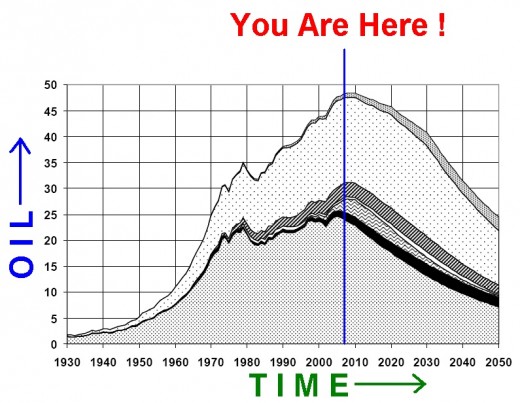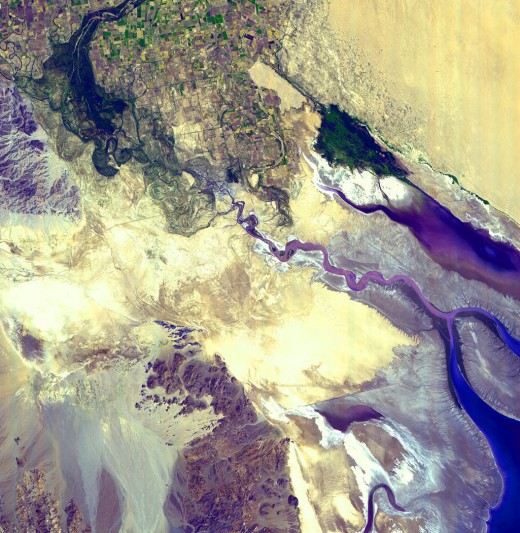Peak Water and Its Lessons: Life After Peak Oil
The concept of a resource reaching a peak refers to the point where about half of the available available supply has been used up. Extraction of oil in the United States, for example, peaked, that is, reached its maximum, in about 1971. Since then it has no longer been possible to meet increased demand with increased production. So we began to increase imports. World production of oil has apparently not yet peaked, but some time in the coming decades, it must.
Does that mean that the whole world faces unprecedented challenges? Must life after peak oil mean massive price increases, worldwide shortages, and resulting unrest as nations indulge in an every-man-for-himself scramble to secure their own supplies? Not if we learn to respond to it as we did when the United States reached peak water!

It appears that the United States hit peak water in 1970. No one noticed at the time. But when we reached our own peak oil at about the same time, we began to import. As demand increased, imports increased, and everyone in the world noticed.
The rest of the world, and many of our own citizens, have come to suspect that our entire relationship with the Middle East centers on securing our oil supplies. Yet when we reached peak water, demand stabilized even though both the American population and economy has continued to grow.
Why does life after peak oil look so bleak and dangerous when this country reached its own peak oil and peak water at the same time? Simply because we could find a new supply of oil, and we're paying a high geo-political cost for it, whereas we could not find a new supply of water.

The response to peak water caused relatively little pain. That's not because water, unlike oil, is a renewable resource. Peak water means that we were draining certain aquifers and river basins more quickly than nature can recharge them. The Colorado River has not reached all the way to the ocean since some time in the 1960s.
Peak water passed without notice because people (and corporations and governments) began to practice conservation practices that confined water usage to more nearly sustainable levels. We still have a long way to go in that direction. As a society we still waste a tremendous quantity of water.
The point is, we do not have water riots or sustained public wrangling over water shortages, or any of the consequences of growing demand for a peaked-out supply.
Oil cannot be renewed in any way, as water can. Life after peak oil will become a crisis or not depending on our ability to stop using it. Worldwide, we have to find new ways to fuel our cars (etc.), generate electricity, and heat our homes. We would also benefit from finding substitutes for petrochemicals.
The United States has made a beginning toward sustainability in water usage. Governments at all levels need to lead, follow, or get out of the way of efforts to find alternatives to oil and the financing and infrastructure needed to make them work.



